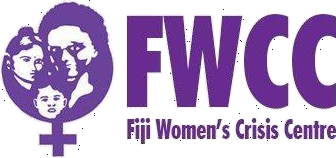Cultural practices and norms often reinforced women’s inferior status, which exposes them to all forms of violence, the Fiji Women’s Crisis Centre’s Fifth Pacific Regional Meeting on Violence Against Women heard.
The 60 participants from 12 Pacific countries and territories are discussing prevention strategies that practitioners working to eliminate violence against women can use.
Women and men working whose work involve addressing gender-based violence have gathered for the week-long meeting from Cook Islands, Fiji Islands, Kiribati, Marshall Islands, Nauru, New Caledonia, Papua New Guinea, Samoa, Solomon Islands, Tonga, Tuvalu and Vanuatu.
Women’s human rights defenders from the highlands of PNG described the challenges they had to deal with in trying to eliminate violence against women.
Mary Kini, the coordinator of Kup Women for Peace in the PNG highland province of Simbu, told the meeting that violence against women stemmed from a broader culture of aggression.
“You have violence between tribes, violence between sub-clans, violence between families, violence within families,” said Kini said.
Kini said because of the widespread violence, when it comes to eliminating gender-based violence, there needs to be a holistic approach to tackling the root causes of a violent culture.
The work of Kup Women for Peace involves going into villages, sitting with families and painstakingly laying out the issues surrounding gender-based violence and explaining its causes and consequences in language the families can understand.
“Some women we talk to about marital rape don’t understand that it is a violation of their rights since it has always been a part of their lives and they have come to accept it,” she said.
Edwina Kotoisuva, the deputy coordinator of the FWCC, pointed out that during times when entire communities and countries are facing economic hardship, or political and social upheaval, people tend to revert to the comfort of their cultural practices, often at the expense of the safety of women and children.
She said not all cultural and religious practices and norms are beneficial and often these practices contribute to the persistent violence that women experience.
“During times of conflict, women will be hesitant to voice their concerns because they feel there are other more pressing issues that need to be addressed. They do not want to be seen as betraying their ethnic group or their community,” Kotoisuva said.
While traditional reconciliation ceremonies can be helpful they often ignored the needs and interests of the survivors of violence, she said.
Merilyn Tahi, the coordinator of the Vanuatu Women’s Centre, said when proclaimed cultural and religious practices and norms that keep women oppressed are examined closely, often it is found that these beliefs actually have no cultural basis or have become perverted.
Winnifred Kamit, a Port Moresby lawyer, highlighted the rise of religious fundamentalism, which she said needed to be challenged by women’s rights advocates.
Difficult questions such as abortion, commercial sex work and homosexuality were touched on during the discussions, and participants were told of the need to confront these issues from a human rights perspective.
Some religious leaders held extremist views that contributed to exacerbating the problem of violence against women and surrounding issues, such as the spread of sexually transmitted infections and HIV/AIDS.
Shamima Ali, the coordinator of the FWCC, said it is important that women were well versed in their own culture and religion so they are better equipped to counter those who believe that culture and religion sanction the oppression of women.
“It is important that you know and are aware of the cultural and religious excuses that are used to condone violence against women,” Ali said.
The Fifth Pacific Regional Meeting on Violence Against Women ends on Friday with a set of country action plans that practitioners in the field of ending violence against women can use to guide them in their work.
